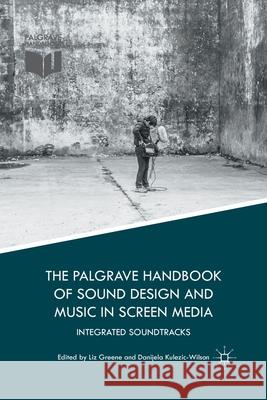The Palgrave Handbook of Sound Design and Music in Screen Media: Integrated Soundtracks » książka
topmenu
The Palgrave Handbook of Sound Design and Music in Screen Media: Integrated Soundtracks
ISBN-13: 9781349703807 / Angielski / Miękka / 2020 / 468 str.
The Palgrave Handbook of Sound Design and Music in Screen Media: Integrated Soundtracks
ISBN-13: 9781349703807 / Angielski / Miękka / 2020 / 468 str.
cena 120,73
(netto: 114,98 VAT: 5%)
Najniższa cena z 30 dni: 115,63
(netto: 114,98 VAT: 5%)
Najniższa cena z 30 dni: 115,63
Termin realizacji zamówienia:
ok. 22 dni roboczych.
ok. 22 dni roboczych.
Darmowa dostawa!
Kategorie:
Kategorie BISAC:
Wydawca:
Palgrave MacMillan
Język:
Angielski
ISBN-13:
9781349703807
Rok wydania:
2020
Wydanie:
2016
Ilość stron:
468
Waga:
0.68 kg
Wymiary:
23.39 x 15.6 x 2.51
Oprawa:
Miękka
Wolumenów:
01
Dodatkowe informacje:
Wydanie ilustrowane











